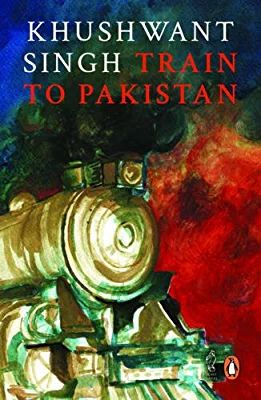'being Gray' - An Analysis Of 'train To Pakistan'
Jun 13, 2019 • 57 views

"Muslims said the Hindus had planned and started the killing. According to the Hindus, the Muslims were to blame. The fact is, both sides killed. Both shot and stabbed and speared and clubbed. Both tortured. Both raped"
An excerpt from the novel.
Published in 1956.
Based on 1947 Partition - The partition of India and Pakistan - A division on the grounds of religion to safeguard political interests and protect the integrity of the nations!
Mano Majra
A fictional village on the border of India and Pakistan composed of Sikhs, Hindus and Muslims.
All living peacefully until that one day!
An attempt to analyse the historical novel:
The small novel glimpses into the lives of millions who were displaced, torn and sabotaged within a year of the partition. Migration isn't easy especially when one is moved without a security. But, is that all what the novel covers? Does it cover only the after effects of the partition? Does it make us realise that the true nature of a human being is realised most during the days of hardship? Does it paint all of us 'gray'?
Khushwant Singh, an author well known to present the unacceptable, unseen sides of the civilised society in the most sabotaging manner yet with a touch of brutal honesty has written this historical novel.
In this novel, he presents the conflict between idealism and realism via three characters - Iqbal, Hukum Chand and Juggut Singh who are contrasting to each other. Iqbal, a social activist is an ideal man only in words. His actions are far away from the reality, he creates in the minds of others. In the days of turmoil, one gets to see his insecurities and void within. Hukum Chand is a complete man in the eyes of the society due to his stature. Being a district magistrate, he had a hand on everything. Yet, he was incompetent and prey to his own weaknesses and vices. Juggut Singh was a starking contrast to the other two. He was a local gangster in love with the blind Muslim tailor's daughter - Nooran. Things have always been rough for him and certainly he isn't a protagonist coming in a shining armour yet shines the way no other character does in the novel. The most selfless action he does at the end of the novel for himself, his fellow villagers and his love ensures the shine of his character stays forever. The shine that is incomparable to the glow of other characters in the novel.
The communal conflict starts in Mano Majra with the murder of local Hindu businessman. Under the charges of murder, Iqbal and Juggut are arrested. They weren't the murderers. The only reason behind their arrest was the lackadaisical attitude of the police forces.
The plot has it's upheaval when the order of the expulsion of local Muslims to Pakistan comes. It sabotages the essence of Mano Majra as they weren't parting from Muslims but from their fellow villagers. The scene is painted contrast to the country which is painted with the blood of communal riots.
The news of Juggat's lover being sent to Pakistan comes to him as he gets to know via strange means that all Muslims are getting ready to be sent to Pakistan. The despair doesn't end here as he is made aware about the plan of local gang of Sikhs to derail the train going to Pakistan. The train that would be carrying Nooran and other Muslim fellows from Mano Majra as a part of their communal revenge. The air of communal violence spread all across the country had finally reached Mano Majra.
It was necessary to take the decision at the spur of the moment by either Iqbal or Juggut or Hukum Chand as they were among the few who were aware of this plan. While Iqbal and Hukum were stuck to their issues in their respective heads, Jugga took the call.
He fought against the enemies within him and rushed to the bridge. The local Sikh gangsters were there for the execution of their plan of mass killing. They had tied the rope in between the two ends of the bridge to derail it from the track and then attack the passengers. Jugga took advantage of the early morning setting. In the dim light, he climbed onto the railings of the bridge and thereafter by hanging onto the rope he cut it despite the gun shots from the gangsters. As a result, he fell on the track. The train carrying Nooran and fellow Muslims from Mano Majra went over him and on to Pakistan. His sacrifice and service remained untold and unseen.
